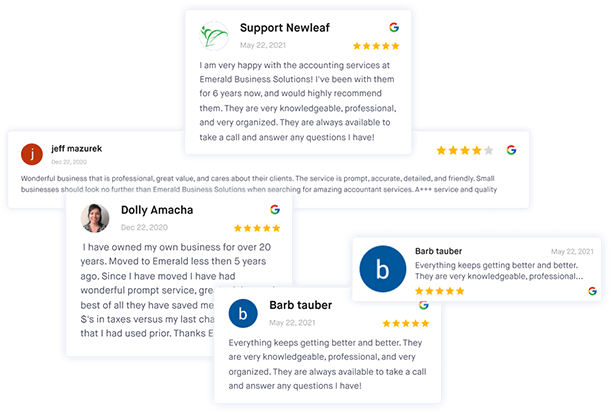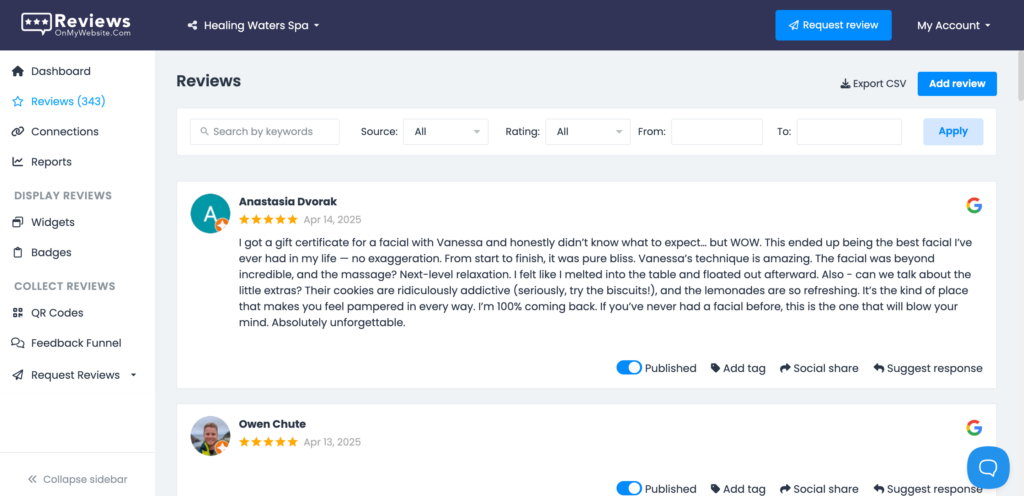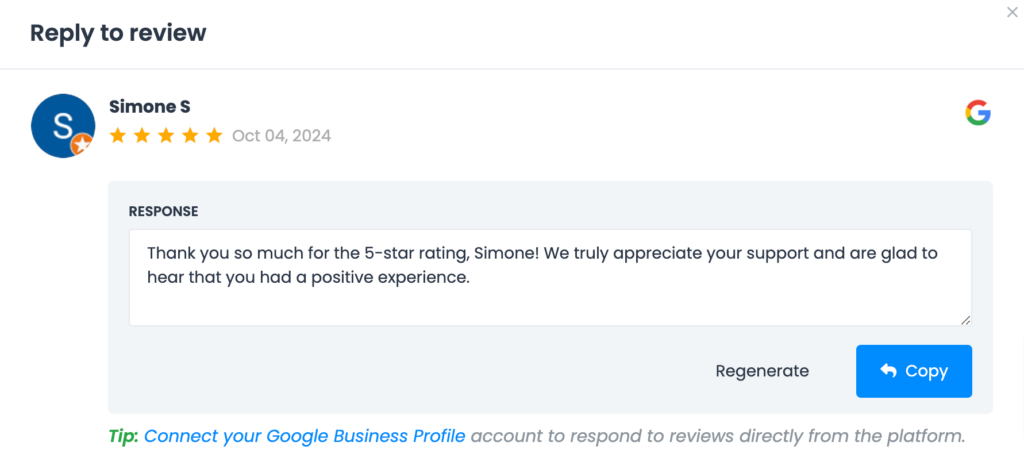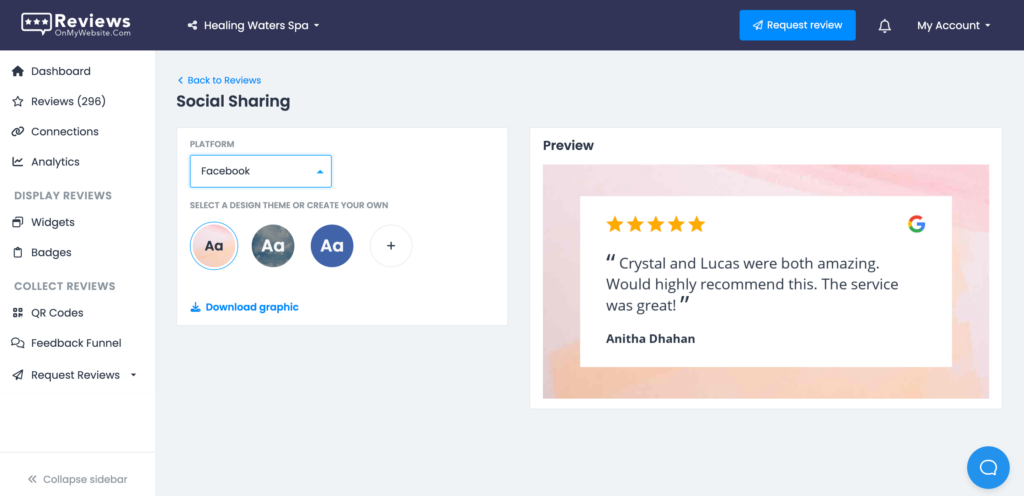As a law firm, referrals can be a great source of new clients. Sometimes, they might be the only thing you need to run a profitable law firm.
But, there’s much more you could be doing to drive even more clients. In this guide, we show you how to plan and implement a successful marketing strategy for your law firm.
What is law firm marketing?
Law firm marketing is a set of strategies and activities used to attract clients to a legal practice. It includes tactics such as search engine optimization, PPC advertising, content marketing, referral marketing, and more.
The goal of law firm marketing is to create visibility and interest for a law firm’s services. It includes creating messaging that resonates with a law firm’s target audience and choosing the right channels to reach potential customers.
Why law firm marketing matters more than ever
Today’s consumers turn to the web when researching any type of service provider, including law firms. They use Google, business directories, social media, and more to find lawyers.
If your law firm isn’t showing up in their online searches (and making a strong impression), you’re highly unlikely to attract new clients.
Marketing also helps with retaining existing clients. Regular email newsletters and educational blog content can help keep your law firm top of mind and increase repeat business.
Building a law firm marketing strategy
Effective law firm marketing requires a sound, data-driven strategy. Having a clear marketing strategy will help you attract the right clients and allow you to use your marketing budget in the best way possible.
Follow the steps below to design an effective marketing strategy for your law firm.
Define your ideal client
You can’t serve everyone. Apart from making it difficult to stand out, not specializing in a specific type of client or service will make it hard to market your services and attract new clients.
Think about which types of cases you’re best equipped for handling and what your ideal client looks like.
Are you looking to target high net-worth individuals who need help with estate planning? Or do you want to work with small business owners facing legal disputes?
Defining your ideal client will help you tailor your messaging and choose the right marketing channels to spend your time and budget on.
Clarify your niche and unique value proposition
Once you’ve decided on an ideal client, you’ll need to devise messaging that attracts this type of client.
A strong value proposition will help explain why you’re the best choice for a client’s specific needs. And why they should choose you over the competition.
Here’s how your value proposition might sound:
“We help injured workers get compensated faster with no upfront legal fees.”
You’ll want to make your value proposition highly specific and benefit-driven.

Improve your law firm's online reputation
Manage and improve your law firm's online reputation with ReviewsOnMyWebsite.
Set marketing goals and KPIs
You should set clear goals and key performance indicators (KPIs) to keep your marketing efforts focused and measurable. For example, instead of simply saying “we want to get more clients,” say “we want to generate 20 new consultations per month.”
You can break down your goals into smaller KPIs like website traffic, conversion rate, or cost per lead. Then, make sure to review these metrics monthly or quarterly to spot trends and make data-driven decisions.
Decide on a budget and allocate resources
Your marketing budget needs to align with your growth goals. A good rule of thumb is to dedicate 2-10% of your annual revenue to marketing.
You can also estimate your revenue target and work backward to calculate your marketing budget.
For example, if you’re looking to generate $500,000 in revenue next year, and you know that each case earns you $5,000 on average, you’ll need 100 cases to reach your target.
With a closing rate of 20%, you’ll need 500 leads to get 100 clients. And if you know your cost per lead is $100, you’ll need a marketing budget of at least $50,000 to generate enough leads to reach your target.
The role of branding in law firm marketing
Effective branding will help you stand out and make sure you’re not just another faceless firm. Building a strong brand will also help build trust and make it easier for you to close new clients.
When working on your law firm’s brand, start by developing a visual identity, including a logo, brand colors, and typography.
And make sure these are consistent across your firm’s entire offline and online presence, including your business cards, website, presentations, and more.
Next, work on defining your brand voice. Are you more formal or authoritative? Or would you like to sound friendly and reassuring?
Remember to match your voice to your ideal client’s expectations.
Digital marketing channels for law firms
Consider these channels when devising a marketing strategy for your law firm.
Search engine optimization (SEO)
Search engine optimization involves improving your business’s and website’s chances of showing up in search results when people search for the types of services you provide.
It involves targeting the right keywords (e.g., “personal injury lawyer in chicago”) and then optimizing your website and online presence for those keywords.
You can use tools like Semrush and Ahrefs to identify which keywords to target. And then optimize your website by using relevant keywords in your page titles, headings, and content.
A crucial part of SEO also involves building backlinks (links from other websites pointing to your site) from reputable online sources.
This shows Google and other search engines that your website is trustworthy, increasing your chances of appearing in search results.
When it comes to ranking for local searches, it’s also important to claim and optimize your Google Business Profile. Make sure to fill out all the information about your business and add accurate NAP (name, address, and phone number) information.
You should also list your website in legal directories like Avvo, FindLaw, and Justia. These can help expose your firm to more potential clients and help improve your online reputation.
Google Ads & PPC
Promoting your law firm and its services through Google Ads and other pay-per-click (PPC) advertising networks can be a quick way to generate attention and potentially drive new clients.
But, it can also be very expensive. To get the most out of your advertising budget, make sure to focus on high-intent keywords (e.g., “divorce lawyer), target your specific location, and use negative keywords to reduce wasted ad spend.
Content marketing
Creating relevant content that’s helpful to potential clients can help you attract organic traffic to your website.
Publish content answering questions potential customers might be asking, such as:
- What are my rights after a car accident?
- How is child custody decided in my state?
- How long do I have to file a personal injury claim?
You can answer these questions in the form of blog posts, videos, or downloadable guides. And share them on your website, social media channels, emails, or even ad campaigns.
Email marketing
You can use email marketing campaigns to keep your law firm top of mind and stay in touch with clients on a regular basis.
This can be in the form of a monthly newsletter sharing firm updates or legal tips. Or automated drip campaigns designed to nurture leads into becoming clients.
Tools like Mailchimp and ActiveCampaign can help you manage your email list, set up and launch email campaigns, and measure engagement.
Social media
You can use social media to build brand awareness, share your content, and engage with your community.
You’ll want to choose platforms where your ideal clients are likely active on. And follow each platform’s etiquette and optimal content formats.
For example, you can use:
- LinkedIn for networking and thought leadership
- Facebook for engaging with your community and getting reviews
- YouTube for publishing legal explainer videos and educating existing and potential clients
Vince Tint, the founder of 12 Steps Marketing, shared his success with driving more leads for a law firm using Facebook:
I worked with a law firm that had their lawyers just talk about real cases on camera. We put those videos on Facebook.
Then the phone started ringing. People who watched wanted to book a consultation.
It wasn't complicated, just authentic case stories that made their expertise feel real, and people responded to that.
AI-powered marketing for law firms
New AI-powered tools are being developed every day. And they’re changing the way law firms do marketing.
AI tools can help you save time and get more done with a smaller team.
You can use tools like ChatGPT or Jasper to draft blog posts, social media captions, and email campaigns. There are also platforms like Intercom and Tidio that offer AI-powered chatbots that can answer questions, qualify leads, and more.
Don’t shy away from using AI tools to streamline your marketing efforts. But be careful when using AI to generate content and avoid using it to deliver legal advice.
Traditional marketing tactics still worth using
While digital marketing is a powerful tool, traditional marketing tactics are still worth trying out, especially for law firms.
Try participating in local events, sponsoring sports teams, or giving presentations to build brand awareness.
Experiment with print and radio ads. Billboards can also work well if you target the right locations.
Make sure to measure performance by tracking calls or web traffic from each offline source, though.
Reputation management and reviews
Your online reputation can mean the difference between having a thriving law firm and a struggling one.
According to our State of Online Reviews report, 92% of consumers read online reviews. And 9 out of 10 say they’ve avoided a business due to a negative review.
This makes it crucial that you actively manage your online reputation.
Managing your law firm’s reputation consists of three essential parts: replying to reviews, generating new reviews, and showcasing reviews.

Improve your law firm's online reputation
Manage and improve your law firm's online reputation with ReviewsOnMyWebsite.
Replying to reviews
Responding to reviews shows that you’re attentive and care about your customers’ experience.
Keep in mind that it’s important to reply to both positive and negative reviews.
When replying to positive reviews, remember to thank the client for their review and let them know that they’re welcome to use your services any time.
As for negative reviews, it’s crucial that you acknowledge the client’s frustration and apologize. You should also invite them to discuss and resolve the issue off-platform by asking them to call or email your firm.
Pro tip: If you’re having a hard time staying on top of all your law firm’s reviews, you can use ReviewsOnMyWebsite to monitor the web for reviews of your business and get notified as soon as a new review is posted.
ReviewsOnMyWebsite also lets you read all the reviews your business gets across multiple platforms from the software’s review feed.

You also have the option to respond to every review right from within ReviewsOnMyWebsite. Or use AI to generate a personalized response in seconds.

Generating reviews
Consumers read 4-10 reviews before they decide to trust a business. And most don’t consider a business if its rating is below 4 stars.
This means that you need to work on getting positive reviews for your law firm consistently.
Here are a few things you can do to generate more reviews:
- Don’t be shy to ask: Ask clients to leave you a review after a successful case resolution. Don’t assume they’ll do it unprompted.
- Make it easy: Try to make it as easy as possible for clients to leave a review. For example, you can generate a Google review link and email it to your clients.
- Automate the process: Use a tool like ReviewsOnMyWebsite to set up automated email and SMS review request campaigns. This will ensure every client gets reminded to leave a review.
Showcasing reviews
Once you’ve collected positive reviews for your law firm, you need to get them in front of potential clients. It’s not enough for reviews to just be displayed on your Google or Yelp profile.
You can use ReviewsOnMyWebsite’s review widget to display your top customer reviews on your site.

The widget is completely customizable and can be adjusted to fit your brand’s look and feel.
Apart from showcasing reviews on your site, you should also share them on social media. ReviewsOnMyWebsite’s social media sharing tool can help you turn your reviews into engaging social media posts in just a few clicks.

Compliance and legal advertising rules
It’s important that your firm follows regulations set by the American Bar Association and state bar associations.
For example, these regulations prohibit:
- Guaranteeing outcomes
- Making unverifiable claims
- Using client testimonials without a proper disclosure
Before you set out to launch your next marketing campaign, make sure to review your state bar association’s guidelines. And if you’re looking to hire a marketing agency, make sure they’re familiar with relevant guidelines and regulations.
Tracking your marketing performance
You should track your marketing performance to understand which tactics and campaigns are working (and worth doubling down on) and which should be abandoned.
Key metrics you should be monitoring include:
- Website traffic
- Time spent on site and bounce rate
- Form submissions and phone calls
- New leads generated
- Cost per lead and client acquisition cost
Review these numbers monthly or quarterly and adjust your strategy accordingly.
Frequently asked questions about law firm marketing
How much should a law firm spend on marketing?
A good rule of thumb for law firms is to allocate 2-10% of annual revenue to marketing.
If you’re aiming for aggressive expansion, you should lean toward the higher end of that number.
When deciding on a marketing budget, make sure to also take into account the average client value and your expected cost per lead.
Does SEO really work for law firms?
Yes, if you do it right. SEO can help law firms show up organically for high-intent searches that drive clients (such as “car accident lawyer”).
It tends to take more time to generate results compared to paid ads, but often delivers a higher return on investment (ROI).
Are Google Ads worth it for law firms?
Google Ads are an effective (but often costly) way of generating new leads and clients for a law firm.
To get the most out of Google Ads, you need to make sure to bid on the right keywords, write compelling ad copy, and use optimized landing pages.
What are the ethical rules for legal marketing?
Law firms are required to comply with advertising rules and regulations set by the American Bar Association and their state’s bar association.
Among other things, these guidelines prohibit guaranteeing outcomes, making unverifiable claims, and using client testimonials without proper disclosure.
How do I know if my marketing is working?
In order to know if your marketing is working, you should track metrics such as website traffic, form submissions and phone calls, the number of new leads generated, and your cost per lead.
Make sure to review these metrics monthly or quarterly and adjust your marketing strategy if needed.
Generate more clients with an effective law firm marketing strategy
If you want to grow your law firm, you need a sound marketing strategy designed to attract and convert new clients.
Start by identifying your law firm’s ideal client, crafting your unique value proposition, deciding on marketing goals, and setting a budget.
Then, choose between a mix of digital and traditional marketing tactics.
Track and measure your results, and adjust your strategy if needed.
Finally, make sure to stay on top of your law firm’s online reputation by actively monitoring new reviews, responding to every review you get, and showcasing your top reviews on your website and social media profiles.




